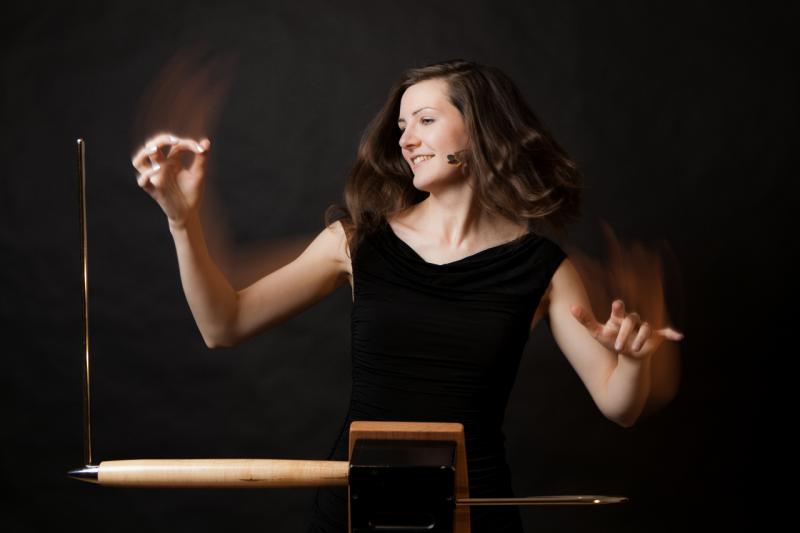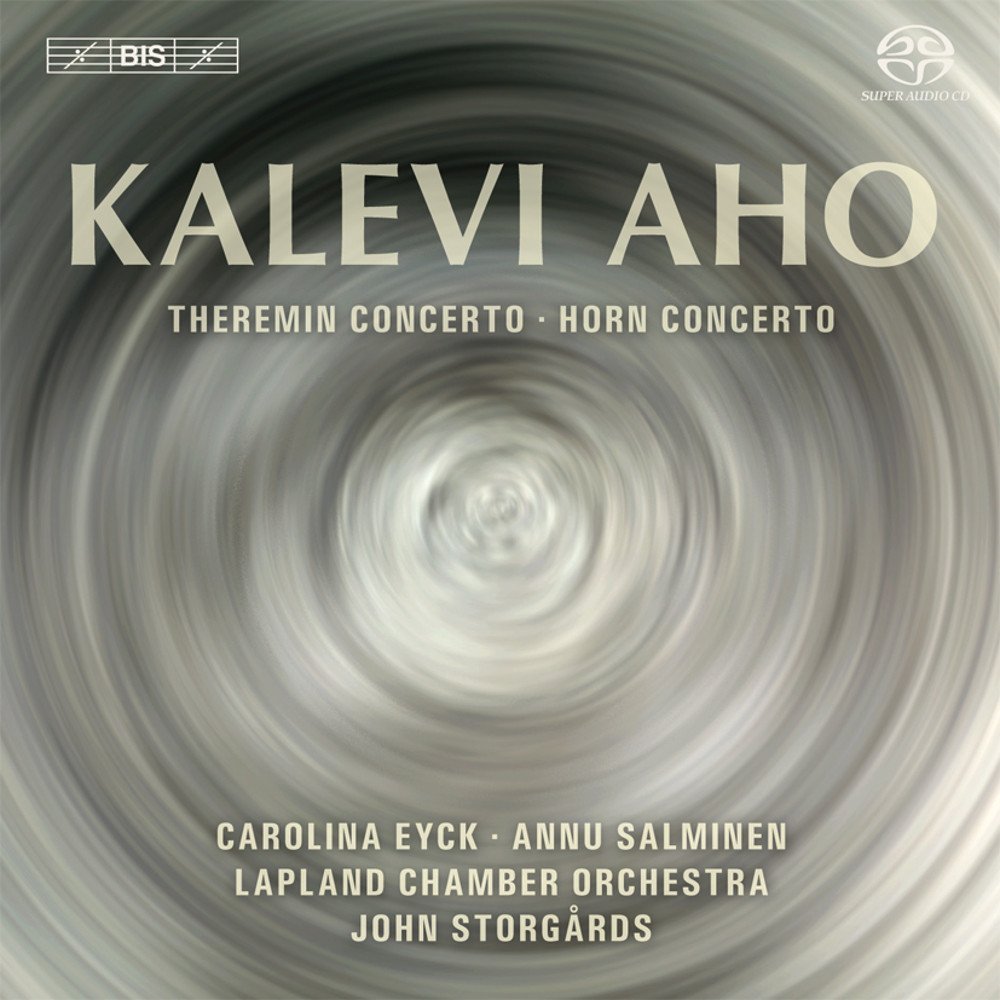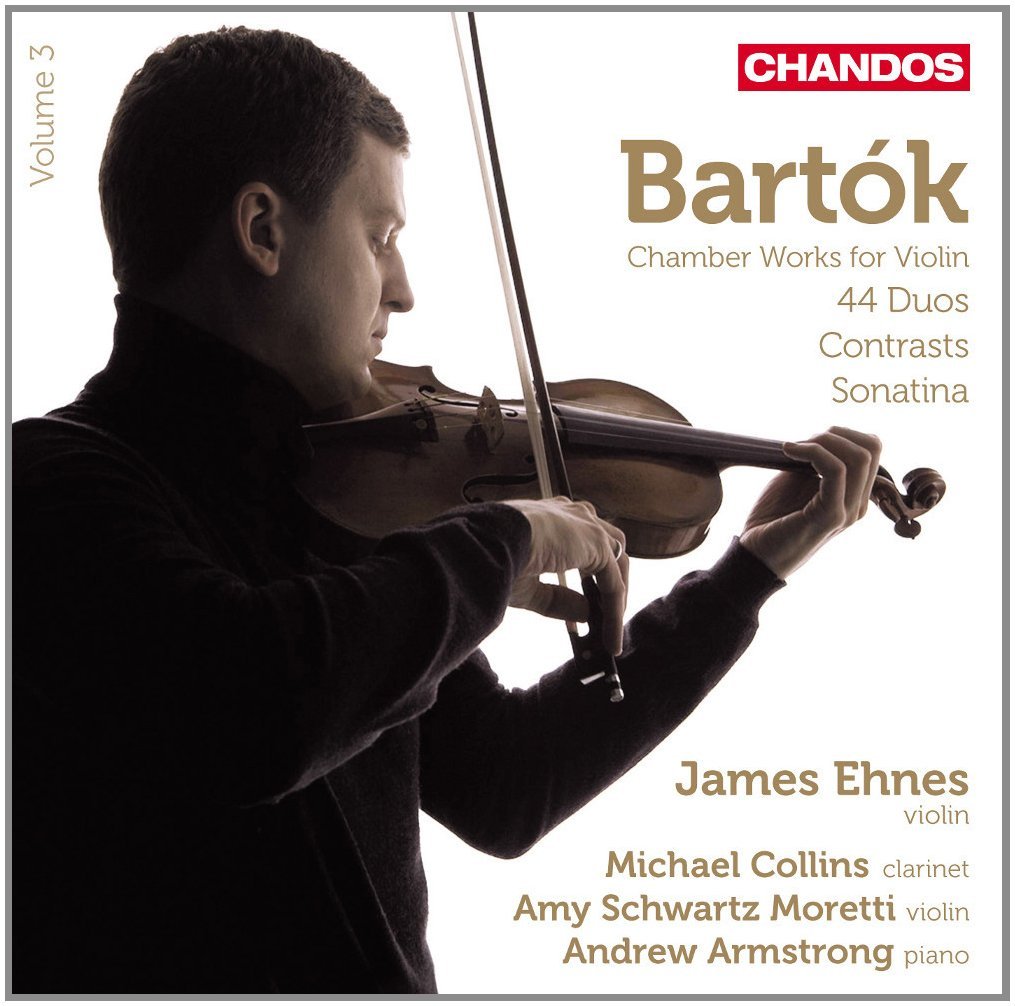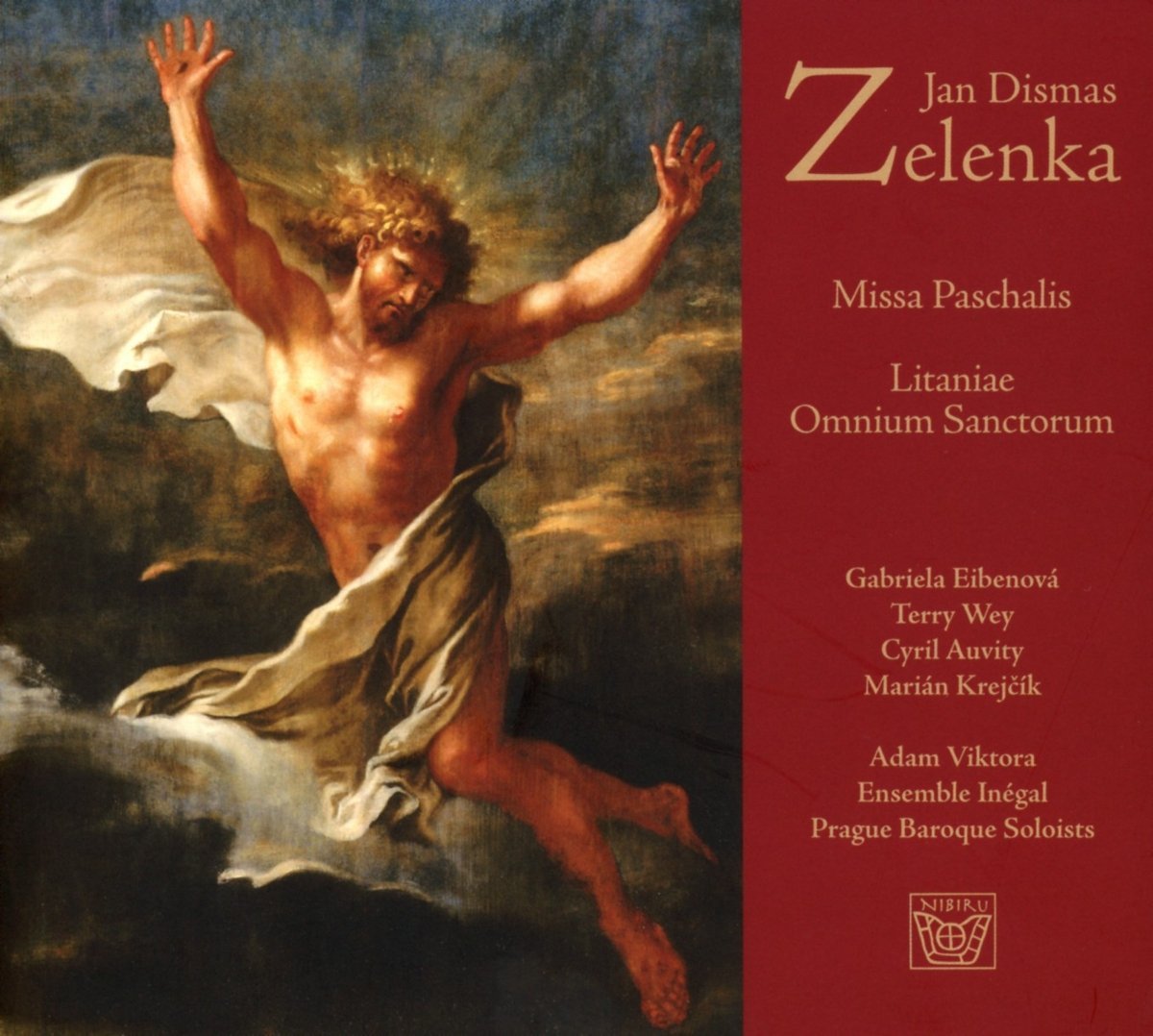Classical CDs Weekly: Aho, Bartók, Zelenka | reviews, news & interviews
Classical CDs Weekly: Aho, Bartók, Zelenka
Classical CDs Weekly: Aho, Bartók, Zelenka
Finnish concertos, Hungarian chamber music and glorious sounds from a neglected Bohemian


The theremin is the only instrument untouched by its player, whose left and right hands have to move in space to control volume and pitch respectively. Nip across to the Musée de la musique in Paris and you can try one for yourself. It's almost impossible to play well, and after aimlessly trying to play a tune you'll probably resort to frenzied atonal whooping up and down the seven-octave range. Finnish composer Kalevi Aho's magnificent 2011 theremin concerto is subtitled Eight Seasons. Indigenous inhabitants of Lapland have long since divided the year into eight sections, and the instrument's other worldly, shamanistic magic appealed to Aho, the player conjuring sound from thin air. Wisely, Aho chose to frame the theremin in a broadly tonal context, giving soloist Carolina Eyck definite pitches to use as reference points. If you've only heard the instrument on Portishead records or B movie soundtracks, this work will amaze. Eyck's ability to produce warm, vocal sounds is unmatched, and at several points she's required to sing along in duet. The theremin's velvety lower register can produce extraordinary sounds, though Eyck can do coloratura craziness just as well. Structurally it's as much a suite of linked movements as a formal concerto, though no less gripping for that. It ends as it begins, the cycle of seasons ready to unwind again – a remarkable, emotionally involving contemporary piece that you'd love to hear live.
Aho's Horn Concerto dates from the same year, and it's played here by its dedicatee, the young Finnish horn player Annu Salminen. She moves around during the performance, starting offstage before coming forward and shifting from left to right across the soundstage. Listen through headphones and the changing perspectives are clearly audible. The horn's out of tune natural harmonics are cleverly exploited and there's a gripping extended cadenza. Mozart's 6/8 hunting horn finales seem to be referenced in a pungent tarantella, where soloist and tutti hornist enjoy a fruitful, aggressive dialogue. Salminen dazzles, and John Storgårds' Lapland Chamber Orchestra provide taut, lively backing.

No composer assimilated and recycled folk music as effortlessly as did Bela Bartók. You hear it in Contrasts – completed in Budapest in 1938 just before he left for New York. It's classed as his first American composition, and Benny Goodman was the original clarinet soloist. Don't expect 16 minutes of spirited jazzy pastiche. Bartók was too sophisticated a composer for that, though the work does seem to take us on a journey from rural Hungary to a brash New World. The last movement's pulsating rhythms are pretty marvellous in this performance, and it's hard not to hear Michael Collins' clarinet whoops two minutes before the end as a musical response to the change of scene. And fascinating to hear the three soloists' introverted dialogue become freer and more coordinated as the piece unwinds. Contrasts is followed by violinist André Gertler's transcription of Bartók's small but perfectly-formed Sonatina for piano, written in 1915. Two of the work's melodies were transcribed after Bartók had heard the fiddle originals, so Gertler's arrangement made sense to a gratified composer. James Ehnes's modesty means he gets the tone exactly right, he and pianist Andrew Armstrong never losing sight of the music's chirpiness.
Bartók's For Children must be the most entertaining anthology for beginner pianists. When invited to arrange them for violin duo he preferred to compose new examples, completing in 1931 a comprehensive sequence of 44 pieces. They draw on a wide range of folk traditions and cultures, displaying musical rigour and great charm. Some are disarmingly simple, others fiendishly complex. Ehnes is partnered, superbly, by Amy Schwartz Moretti. They make light of Bartók's varying technical demands. What could be dry and academic becomes joyous and readily accessible.
The Baroque Bohemian composer Jan Dismas Zelenka's name has become more familiar in recent decades; if you're lucky enough to stumble across a functioning classical CD shop, he'll be the one dominating the Z section. Bohemian by birth, his career flourished in Dresden in the early 18th century. Bach knew Zelenka and admired his music, which fell into obscurity after his death in 1745. Smetana began the Zelenka revival in the 1860s; more recently, Reinhard Goebel and Heinz Holliger have boosted his profile. Here we've the premiere recording of his Missa Paschalis, first performed on Easter Monday in 1726. Some musical obscurities deserve to remain neglected. This one doesn't. In this exemplary performance, Zelenka's brilliantly theatrical setting erupts into life – notably during the exuberant, upwardly mobile "Et resurrexit" near the close of the "Credo". Four trumpets dominate the scoring, and each brief movement sparkles. The final "Dona nobis pacem" is as much a brassy paen to life as a prayer for peace.
Zelenka's Litaniae Omnium Sanctorum dates from 1735, performed as part of three days of prayer held to prompt a successful royal child birth. More diverse and individual than the Missa Paschalis, it's full of quirky delights. Melting harmonies in the "Propitius esto" will induce shivers of delight, and tenor Cyril Auvity's "Ab ira tua" is splendid. Adam Viktoria's well-drilled choir sing immaculately, and they're nimbly accompanied. Enchanting, moving stuff, beautifully performed and recorded.
Explore topics
Share this article
The future of Arts Journalism
You can stop theartsdesk.com closing!
We urgently need financing to survive. Our fundraising drive has thus far raised £49,000 but we need to reach £100,000 or we will be forced to close. Please contribute here: https://gofund.me/c3f6033d
And if you can forward this information to anyone who might assist, we’d be grateful.

Subscribe to theartsdesk.com
Thank you for continuing to read our work on theartsdesk.com. For unlimited access to every article in its entirety, including our archive of more than 15,000 pieces, we're asking for £5 per month or £40 per year. We feel it's a very good deal, and hope you do too.
To take a subscription now simply click here.
And if you're looking for that extra gift for a friend or family member, why not treat them to a theartsdesk.com gift subscription?
more Classical music
 BBC Proms: Barruk, Norwegian Chamber Orchestra, Kuusisto review - vague incantations, precise laments
First-half mix of Sámi songs and string things falters, but Shostakovich scours the soul
BBC Proms: Barruk, Norwegian Chamber Orchestra, Kuusisto review - vague incantations, precise laments
First-half mix of Sámi songs and string things falters, but Shostakovich scours the soul
 BBC Proms: Alexander’s Feast, Irish Baroque Orchestra, Whelan review - rapturous Handel fills the space
Pure joy, with a touch of introspection, from a great ensemble and three superb soloists
BBC Proms: Alexander’s Feast, Irish Baroque Orchestra, Whelan review - rapturous Handel fills the space
Pure joy, with a touch of introspection, from a great ensemble and three superb soloists
 BBC Proms: Moore, LSO, Bancroft review - the freshness of morning wind and brass
English concert band music...and an outlier
BBC Proms: Moore, LSO, Bancroft review - the freshness of morning wind and brass
English concert band music...and an outlier
 Willis-Sørensen, Ukrainian Freedom Orchestra, Wilson, Cadogan Hall review - romantic resilience
Passion, and polish, from Kyiv's musical warriors
Willis-Sørensen, Ukrainian Freedom Orchestra, Wilson, Cadogan Hall review - romantic resilience
Passion, and polish, from Kyiv's musical warriors
 BBC Proms: Faust, Gewandhausorchester Leipzig, Nelsons review - grace, then grandeur
A great fiddler lightens a dense orchestral palette
BBC Proms: Faust, Gewandhausorchester Leipzig, Nelsons review - grace, then grandeur
A great fiddler lightens a dense orchestral palette
 BBC Proms: Jansen, Royal Concertgebouw Orchestra, Mäkelä review - confirming a phenomenon
Second Prom of a great orchestra and chief conductor in waiting never puts a foot wrong
BBC Proms: Jansen, Royal Concertgebouw Orchestra, Mäkelä review - confirming a phenomenon
Second Prom of a great orchestra and chief conductor in waiting never puts a foot wrong
 BBC Proms: Royal Concertgebouw Orchestra, Mäkelä review - defiantly introverted Mahler 5 gives food for thought
Chief Conductor in Waiting has supple, nuanced chemistry with a great orchestra
BBC Proms: Royal Concertgebouw Orchestra, Mäkelä review - defiantly introverted Mahler 5 gives food for thought
Chief Conductor in Waiting has supple, nuanced chemistry with a great orchestra
 Dunedin Consort, Butt / D’Angelo, Muñoz, Edinburgh International Festival 2025 review - tedious Handel, directionless song recital
Ho-hum 'comic' cantata, and a song recital needing more than a beautiful voice
Dunedin Consort, Butt / D’Angelo, Muñoz, Edinburgh International Festival 2025 review - tedious Handel, directionless song recital
Ho-hum 'comic' cantata, and a song recital needing more than a beautiful voice
 Classical CDs: Dungeons, microtones and psychic distress
This year's big anniversary celebrated with a pair of boxes, plus clarinets, pianos and sacred music
Classical CDs: Dungeons, microtones and psychic distress
This year's big anniversary celebrated with a pair of boxes, plus clarinets, pianos and sacred music
 BBC Proms: Liu, Philharmonia, Rouvali review - fine-tuned Tchaikovsky epic
Sounds perfectly finessed in a colourful cornucopia
BBC Proms: Liu, Philharmonia, Rouvali review - fine-tuned Tchaikovsky epic
Sounds perfectly finessed in a colourful cornucopia
 BBC Proms: Suor Angelica, LSO, Pappano review - earthly passion, heavenly grief
A Sister to remember blesses Puccini's convent tragedy
BBC Proms: Suor Angelica, LSO, Pappano review - earthly passion, heavenly grief
A Sister to remember blesses Puccini's convent tragedy
 BBC Proms: A Mass of Life, BBCSO, Elder review - a subtle guide to Delius's Nietzschean masterpiece
Mark Elder held back from blasting the audience with a wall of sound
BBC Proms: A Mass of Life, BBCSO, Elder review - a subtle guide to Delius's Nietzschean masterpiece
Mark Elder held back from blasting the audience with a wall of sound

Add comment